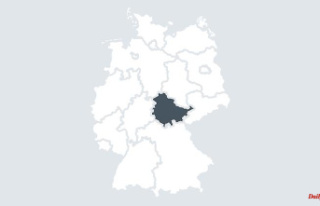So far, persecuted Kremlin critics have had to pass a security check before they can be admitted to Germany. And then it is usually only enough for a three-month Schengen visa. Now the admission should be less bureaucratic and possible for a longer period of time.
The federal government has agreed on facilitating the admission of Kremlin critics from Russia who are particularly at risk. Those affected include those active in the fields of media, science and human rights, as a spokesman for the Federal Ministry of the Interior announced. In addition to the Interior Ministry, the Foreign Office and the Federal Government Commissioner for Culture and the Media were also involved in the agreement. Those affected should be granted admission and a long-term stay in Germany on the basis of Section 22 of the Residence Act, the spokesman said. It is about admission "for international law or urgent humanitarian reasons" and "to protect the political interests of the Federal Republic of Germany".
Human rights defenders and employees of foreign organizations who are classified as "undesirable" in Russia should benefit from the regulation. Individuals who are considered "foreign agents" there should also fall under the protection regulation. There are also representatives of the democratic opposition in Russia, who have taken a stand against the Ukraine war, and other representatives of civil society. This applies in particular when organizations or individuals affected have a connection to Germany through their activities.
With regard to journalists, the ministry spokesman said that they should also "be given the opportunity to continue reporting freely from Germany. The same applies to scientists who "can no longer continue their work in Russia" because of their criticism of the Russian war of aggression against Ukraine be able to exercise them freely and independently". The approval of admission therefore also includes the nuclear families of those affected. However, details of the procedure still have to be clarified. According to the Interior Ministry, people must "make their persecution credible in individual cases". How many Russians are at stake here, "Cannot be reliably forecast," said the spokesman.
According to the agreement, the German embassies should issue visas for these people. German representations in third countries can also do this. A report by the Funke media group specifically mentions Turkey and Georgia, where many Russians are currently in exile. For Germany, affected people from Russia have usually only received a limited Schengen visa for a maximum of 90 days.
In recent weeks, the Ministry of the Interior and the Foreign Office have been arguing about the legal criteria and the procedure for admitting persecuted people from Russia. It was also about the security check of those affected by German authorities. Both Federal Interior Minister Nancy Faeser, Foreign Minister Annalena Baerbock and Minister of State for Culture Claudia Roth spoke out in favor of quicker and less bureaucratic residence opportunities for Putin opponents.












